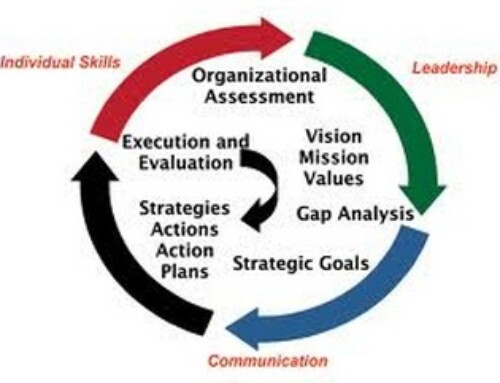Economists are expecting 5% growth in 2016. Yet many of our clients are setting expectations above 25%. Goal setting is more than just putting numbers on a page and slapping your business in the rear, yelling “go get ‘em” while you stand there in the dust with your hands on your hips hoping for the best. Goal setting is about getting on the horse and leading the charge.

Before you get on that horse, you had better know where you plan to go. In business school, they call this discovery. It is a process for understanding the possibilities for your organization. I wrote last week about the three economic requirements for growth – capital, labor, and productivity. Discovery involves taking a hard look at your financial position, the skills of your employees, and the productivity of how you do business today.
A lot of great leadership also involves storytelling. When journalists are interviewing for a story, they are taught to ask who, what, when, where, why, and sometimes how. In business, this process is a bit different.
The discovery process for consultants involves two types of research methodology. The first is to call a lot of people and interview them. Depending on the size of the organization, WAV Group talks to every business leader – CEO, CFO, CTO, Regional Managers, Trainers, Support, key business partners, some managers, some customers, and whoever else makes sense. The second type of research is to perform a survey. This allows us to collect data that informs the strengths and weaknesses of a business.
Understanding your strengths and weaknesses is the key to defining the possibilities for growth in any market. You identify what you will focus on and you fix it. But there is a risk. A client of mine reminds me that if Henry Ford had used this methodology, he would have focused his life on faster horses. Another client refers this to riding the lead horse in a merry-go-round.
client refers this to riding the lead horse in a merry-go-round.
The key to driving unusual growth is gaining outside knowledge and perspective. Consultants are experts at delivering ideas for your business that you have not considered. We find that a lot of chief executives will find great ideas in the marketplace by talking to their peers and competitors, or attending conferences. They write a note to themselves about exploring an opportunity or possibility. When they return home, they survey their business to find someone to take that note and turn it into a well-researched opportunity summary. More often than not, when they look around, there is nobody who has the time or skill take the note and run with it.
If you have an idea, or need a plan of attack, we are happy to help in areas of project management, vendor selection, business planning, strategic planning, communications, and business coaching. Our contact info is here.




